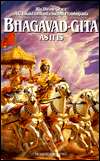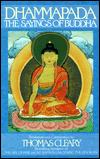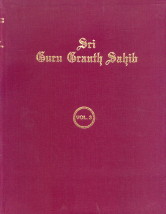![]()
How I Lost Faith: How the end of religion can be the beginning of God






"Two years ago I lost my faith. After 14 years of nearly uninterrupted focus on God and spiritual growth I was suddenly done. I had lived like a monk. Granted, I was in the midst of modern life and not in a cloister. Yet I was celibate, vegetarian, didn't use drugs, alcohol or other mind-altering substances and got up every day at 4:00 a.m. to practice meditation.
So why was I suddenly done with all that? I came to the conclusion that I had fallen prey to one of the chronic illnesses of our time: organized religion. Increasingly, my thoughts had become rote and routine. My own experiences served less and less as my guide, and my actions were increasingly ruled by the concepts, rules and dogmas of my religious community. The Buddhists have a wonderful word for what I had lost: "Beginner's mind.”
In those 14 years I had an answer for everything. What God is, where we come from, where we are going, what the meaning of life is, why the world is such a mess. People came to me for advice and, without skipping a beat, I directed them to God. Well, to my God. It all worked fine, until doubts started to creep in. Not so much about God or the wisdom I had acquired; I mainly doubted the value of my teachings and advice. I saw all too often that people followed what I said only to get caught up in"manmade"belief systems.”- Tijn Touber
By: Tijn Touber
Religion seems to get in the way of our true connection with God. It seems only to connect people with others looking for the one pure faith, notes Ode senior editor Tijn Touber, which leads to the formation of more sects. That's why he recently severed his years- long connection with the spiritual community he belonged to—an Indian Raja Yoga institute—and now believes that spirituality's future may depend on dismantling the houses of the holy.
Two years ago I lost my faith. After 14 years of nearly uninterrupted focus on God and spiritual growth I was suddenly done. I had lived like a monk. Granted, I was in the midst of modern life and not in a cloister. Yet I was celibate, vegetarian, didn't use drugs, alcohol or other mind-altering substances and got up every day at 4:00 a.m. to practice meditation.
So why was I suddenly done with all that? I came to the conclusion that I had fallen prey to one of the chronic illnesses of our time: organized religion. Increasingly, my thoughts had become rote and routine. My own experiences served less and less as my guide, and my actions were increasingly ruled by the concepts, rules and dogmas of my religious community. The Buddhists have a wonderful word for what I had lost: "Beginner's mind.”
In those 14 years I had an answer for everything. What God is, where we come from, where we are going, what the meaning of life is, why the world is such a mess. People came to me for advice and, without skipping a beat, I directed them to God. Well, to my God. It all worked fine, until doubts started to creep in. Not so much about God or the wisdom I had acquired; I mainly doubted the value of my teachings and advice. I saw all too often that people followed what I said only to get caught up in"manmade"belief systems.
In the non-traditional religions and new age-like movements, you often see that structured perceptions of God cause people to become rigid and smothered. They give up everything they have for gurus, turn their backs on friends and family, dress in exotic clothes and adopt foreign customs in hopes of getting closer to God. They switch off their common sense in favor of the newly adopted moral frame of mind. Feeling is replaced by a checklist of the organization's rules.
Of course not everyone falls prey to blind obedience. Many learn from their experiences and remain open, but the sway of such spiritual groups is strong and it takes integrity and courage to resist the prevailing dogmas. And it takes a lot of insight, because you often can't see the moral assumptions of the group's culture. The bible tells us that humans are"Insignificant"And"tend toward evil.”But is that true? We learn that Allah will reward us in heaven if we sacrifice for him in this life. But is that true? Who has so much insight that they are capable of putting their own moral context in perspective? Are fish aware of the water they swim in? Several years ago I spoke with the Episcopal priest Lloyd Casson, who at that time was the vicar of Trinity Church, the prestigious church on Wall Street in New York. I will never forget what he said when I asked him why religious and spiritual leaders often think in such a restricted way and prescribe such damaging rules to their disciples. I cited examples such as confession and penance, harsh discipline, original sin, numbing rituals. The priest went quiet for a moment, perhaps considering whether he should say something or not. Then he sat up straight: "Most religious leaders barely have the time to connect with God. They aren't practicing religion, but politics. These are senior civil servants whose hands are full keeping the institution running. Their primary concern is"recruiting souls.”
The word"religion"Is derived from the Latin word religare meaning"to reconnect with God.” Religare is said to come from the Sanskrit word yogum, meaning"Integration"or"unity.” Isn't it ironic that the top ranks of the religious and spiritual world apparently have little time to connect with God? The history of organized belief is teeming with efforts to hand down laws and recruit souls. Very successfully, it seems. Only 14 percent of the world's population is officially non-religious. The rest is divided among Christianity (33 percent), Islam (22 percent), Hinduism (15 percent), Buddhism (6 percent) and smaller branches (10 percent), including indigenous faiths and new age movements.
The beginning of the end of my self-imposed monk's existence came when I uttered three simple words: "I don't know.”It was during a class in which questions were being fired at me one after the other. Personal problems, theological disputes, spiritual experiences—I was there to provide clarity. But no more, I thought. And why? Because I didn't know the answers. And I decided to say so.
I was greatly relieved. And I wasn't the only one—so were my students. Which is logical really, because we were suddenly sitting together as equals, as seekers looking out for one another on a new path to wisdom. I could learn from them, too. I could open up and receive. I decided that from then on I would go only with my own experience and not with a"truth"I had learned by rote.
I decided to stop teaching and haven't for the past two years. Now all I do, I sometimes say jokingly, is make tea. Every two weeks people come over to my house to share their experiences—sometimes spiritual, sometimes not—and to meditate or pray together. Every imaginable topic is discussed and each one of us seems to have our own way of experiencing God and life.
How would it be if spiritual leaders were to meet one another like this? How freeing would it be if they were able to step out of their scholarly convictions for awhile and respectfully bow their heads toward each others' mutual religious efforts. After all, what do we really know about God or a potential hereafter? What do we understand about creation? The more you begin to grasp it, the greater the miracle becomes and the more you recognize that you really don't understand very much at all. Isn't it arrogant to pretend that you know God and know what he or she wants? Aren't you then implying that you are God's equal? (Which may well be the case, but that's another story.)
Imposing your God on someone else is the height of arrogance. When you force your truth on someone, you reject his or her experience. it's like saying: "What you feel and think and have seen is no good.”By rejecting a fellow human being this way, you actually reject creation, which is God's creation, right? You take it upon yourself to pass judgement based on your moral assumptions and theories that cannot be proved. You become blind to the truth, which is that there are different people with different experiences. You live in denial and separate yourself from the larger whole, which means that you automatically separate yourself from God.
So religion was meant to reconnect us with God. And of course this happens too; there are wonderful people who do the most amazing things thanks to their belief. Based on a rock-solid Hindu faith, Gandhi was able to drive the British out of his country with little bloodshed. The Christian church played a major role in abolishing apartheid in South Africa and the Islamic zaqat tax system—whereby 2.5 percent of income goes to charity—shows how magnanimous religions can be. Apart from the inspiring lives of Jesus, Buddha and Mohammed, more recent history has also shown that religious figures can create miracles, just think of Mother Teresa, the Dalai Lama and Martin Luther King.
But organized religious movements do not, by definition, connect people with God. They primarily connect people with one another, which leads to the formation of sects that live based on the same"truth.” When one such group no longer respects the truth of another group, the two butt heads. Ultimately, the result is not connection, but separation and division.
If a religion leads to division, is it still a religion? How can you claim to be connected with God if you turn away from your fellow human beings? To what level have you sunk as a"religious"or"spiritual"person if you believe you can reject, convert or even attack the dissidents among us in the name of God? What's left of God if we commit crimes in his or her name? Instead of gaining inspiration from a benevolent God that represents all that is beautiful and true, God is debased and corrupted. God is made to do our dirty work. God is elevated to a supreme authority that will sort out our problems. Children do that when they're afraid. They use their father to threaten others: "If you don't stop I'll get my dad and he can beat up your dad.”Religious sectarians cry," My father is God.”And the more afraid they are, the louder they cry.
Why are we so afraid? Probably because we are so unsure. When I feel unsure, I try even harder to have the last word, as if I want to convince myself too. I'm thinking that the more people who agree with me, the more my uncertain"truth"Will become"true.” If, however, I'm really sure about something and feel it deep inside, I don't need to convince anyone else.
When I was able to admit that"I don't know," space was suddenly created in my life for authentic experiences. And those experiences— how paradoxical!—are often so intense they give me more certainty and trust than I get from earlier deeply-held spiritual beliefs. Intellectual concepts about how something must be get in the way of experiencing what is.
The founders of new religions, who true believers now worship, didn't allow themselves to be led by the prevailing dogmas of their time, but were open to a new reality. They followed their own sense and their own feeling. They weren't disciples or rule makers but inspiring individuals who pointed to the greatness of God and to creation. After they passed away, more and more rules, dogmas, commands, mores, codes, missions, credos and laws were created. It is a known fact that Christians are often more righteous than Jesus, just as Marxists are more doctrinaire than Marx.
The true value of a religious persuasion lies not in its moral codes or religious texts and writings. The value of every life philosophy— whether it be Islamic, capitalistic, scientific, agnostic or anarchistic—can be seen in the happiness and well-being of those who believe in it. This is a generalization, but if you want to know whether the Bible is right, look at Christians around the world. How do they treat one another, the planet, their children, their money, dissidents? How healthy are they, how happy is the expression on their faces, how warm-hearted are they?
If it appears that a particular faith seems to instill misery, it's time to consider revisions. This is not just about unconscious and deeply-rooted thought patterns, but about what we have chosen to call"holy.”
Re-examining our concepts about God, creation and the hereafter feels like pulling the rug out from under civilization. Religious convictions are at the very foundation of our thinking, but also form the basis of our pain. The fall from grace, the separation from God, the separation from the goddess, the loss of innocence, original sin, the burden of guilt, the fear of sinful acts and an omnipresent, wrathful and vengeful God color many people's perceptions of existence. Not to mention the concepts that encourage surrendering to a higher authority without question; the wrenching choice between humanity and God; the degradation of feelings, emotions and desires; and—last but not least—the way humans are nullified by hierarchical structures with God at the top of the pyramid.
The crisis currently facing many religions could end up being a good thing. Aversion to fundamentalist thinking is increasing exponentially now that religions are showing their worst side. A few years ago, religious groups may have been able to get away with attacking one another to prove they were right. But that's becoming a thing of the past. You don't have to wear flowers in your hair to understand that humanity cannot afford such childish behavior. Weapons of mass destruction have made that impossible. Our backs are up against the wall—a wall we've built ourselves to protect us against the uncertainty of earthly existence.
How do you break down such walls? The first step is to realize that the wall is an illusion. The wall only exists in your own mind and consists of ideas, concepts and convictions you've adopted. The good news is, you can always go back to who you were before you started building the wall. For me it was simply a matter of sitting silently, breathing deeply, smiling and tuning into the beautiful world inside. The emotion I felt was so great that no wall can withstand it.
Along with re-establishing contact with your own deepest core, it's also useful to revise the religious concepts that determine your life. Are they working for or against you? You can still gain inspiration from religious texts and age-old stories as long as you are aware that they are stories. Nothing more, nothing less. I often forget what I did yesterday, let alone remember what someone else did 2,000 years ago.
Another concept worth reconsidering is that"knowing"Will lead to wisdom. This drives us to get to the bottom of the truth. But maybe it's better not to understand everything. Maybe the point of life is not about getting to the bottom of it. Maybe it's simply about living for the sake of living. Maybe life doesn't have any deeper meaning than the meaning that you give it each moment. It can be liberating to keep the mystery intact instead of wanting to unravel it, explain it, write it down and proclaim you've uncovered the ultimate"truth.” For me, in any case, saying"I don't know", sitting in silence and being open to listen offers more insight than a rational analysis or a logical explanation.
Of course it's dead scary to let go of the certainties we've adopted. I spent months immersed in doubt. Who was I, now that I had turned away from the identity I lived and breathed for 14 years? There was a gaping emptiness, as if paradise were lost. Not only later, but also now, here. Nothing was certain anymore, nothing was fixed. I had landed on earth and was suddenly facing life alone. There wasn't a single authority I could turn to. And precisely then, in the depths of that fear, I found myself smiling. It may have been scary and lonely, but it was real. Now that there wasn't anyone to trust blindly, I rediscovered my own navigational system, which enabled me to live based increasingly on my own inner wisdom.
The moment I rediscovered myself, God reappeared in my life. Not the God of Christianity, Islam or any other organized faith, but my God. I no longer have to prove, explain or praise this God. I only have to experience God, which makes my life even more rich and beautiful. it's wonderful to believe in a beautiful, true God. It provides hope and inspiration and gives my life a deeper meaning.
I've noticed that belief and common sense can coexist quite well together. They are not antitheses but different realities that can live side by side. I cannot and do not have to explain God in order to believe in him (her?, it? them?). Part of me has a great need for religion, spirituality, mysticism, rituals and unconditional surrender to a higher power. Another part is critical and tests mystical experiences against practical reality. Faith is beautiful, as long as it does not become blind.
When I let go of my blind faith, more space was created within me for religious, mystical or spiritual experiences. A head full of facts and details was no longer standing in the way, which allowed the heart to speak. Losing my faith was the best thing that could have happened to me, because now I can believe again.
How I Lost Faith: How the end of religion can be the beginning of God
http://www.operationrebirth.com/ttouber.html
Related Articles
Each one of them hides from the ultimate test of its validity and truth
Self-Deception and the Problem with Religious Belief Formation
According to Hindu scriptures even thousands of years of rituals ...
High caste Banyan forced into arranged marriage with lowly peepal
The Great Cover Up [of reincarnation] - Emperor Justinian
Peter de Rosa, Vicars of Christ: The Dark Side of the Papacy
765 problems with 'god' of Genesis solved by Jesus
Gospels in Conflict: John and Thomas
Why Christianity Must Change or Die - Review
Why Christianity Must Change Or Die: A Bishop Speaks
Jesus: The false vengeful God demands such needless sacrifice
Jesus enjoins Judas"to seek [after the] spirit within you.”
The Christ is the liberator and restorer of woman
Papal Sin: Structures of Deceit
Religious progressives
How I Lost Faith: How the end of religion can be the beginning of God
"God gave humans the truth, and the devil came and he said ...”
Great barbarian empire of patriarchy that men have created will decay
Thou shalt not kid yourself
Cardinal's Law
The Papacy: The Seldom Told History
Pope apologizes for residential-school abuse
Sectarian religion implies a closed society
Islamic theologians defend racist rocks and terror trees ...!
Idol worship is perhaps the greatest falsehood of Hinduism
Rabbis loathe Sex and the City, love sex in the city
Muslims unable to find even one of 123,974 missing prophets
Comparing single note from Quran with entire orchestra of Guru Granth
When Jesus and Shri Mataji talk about God Almighty you ...
Betrayal: The Crisis in the Catholic Church
To all Muslims: "You persistently closed your mind to this promise"
The Great Cover Up [of Christianity] - Emperor Constantine
The word"pope"Was to both Lord Jesus and the Great Adi Shakti
A willful and deliberate rejection by Muslims of the Great News
Shri Mataji: “Christianity has nothing to do with Christ"
Shri Mataji: “There is so much blind faith ... so much of wrong ideas"
Shri Mataji: “And now the time has come for it to be blasted.”
Shri Mataji: “Like all the thieves of the world ... have taken over.”
Sex crimes and the Vatican
Disclaimer: Our material may be copied, printed and distributed by referring to this site. This site also contains copyrighted material the use of which has not always been specifically authorized by the copyright owner. We are making such material available to our readers under the education and research provisions of "fair use" in an effort to advance freedom of inquiry for a better understanding of religious, spiritual and inter-faith issues. The material on this site is distributed without profit. If you wish to use copyrighted material for purposes other than “fair use” you must request permission from the copyright owner.